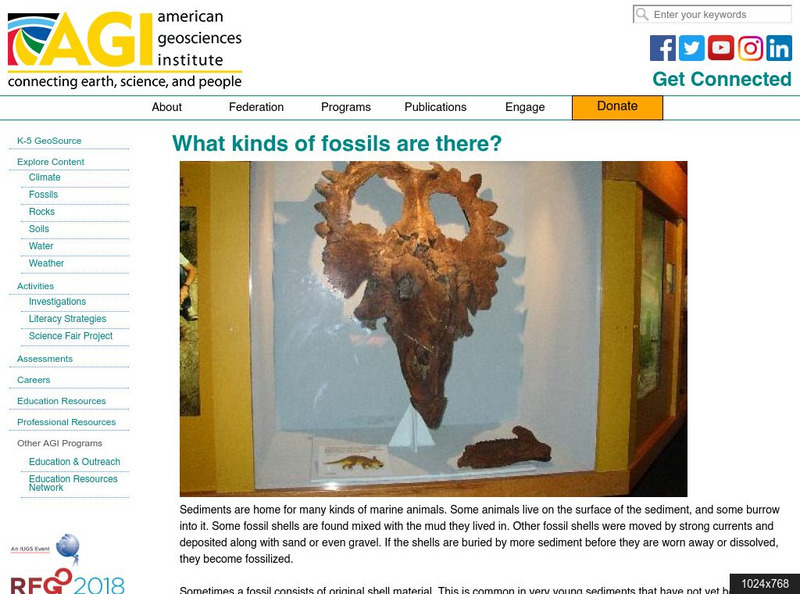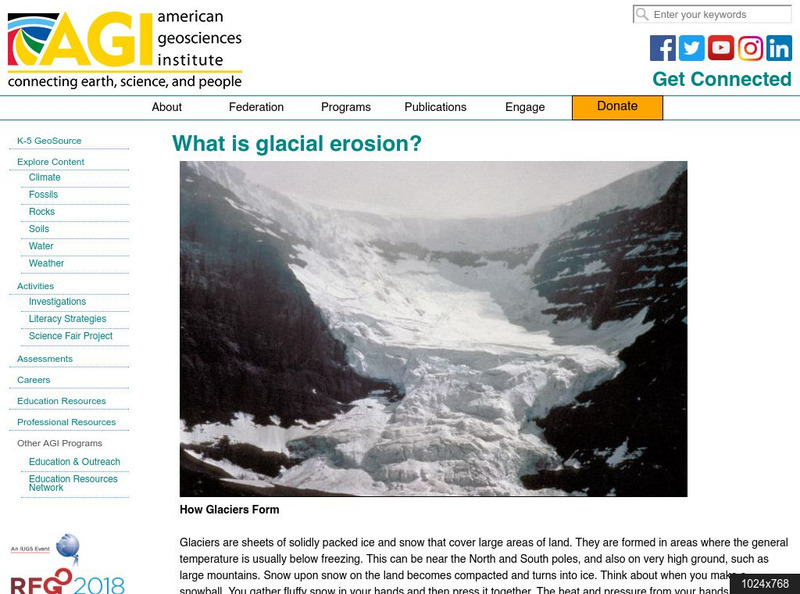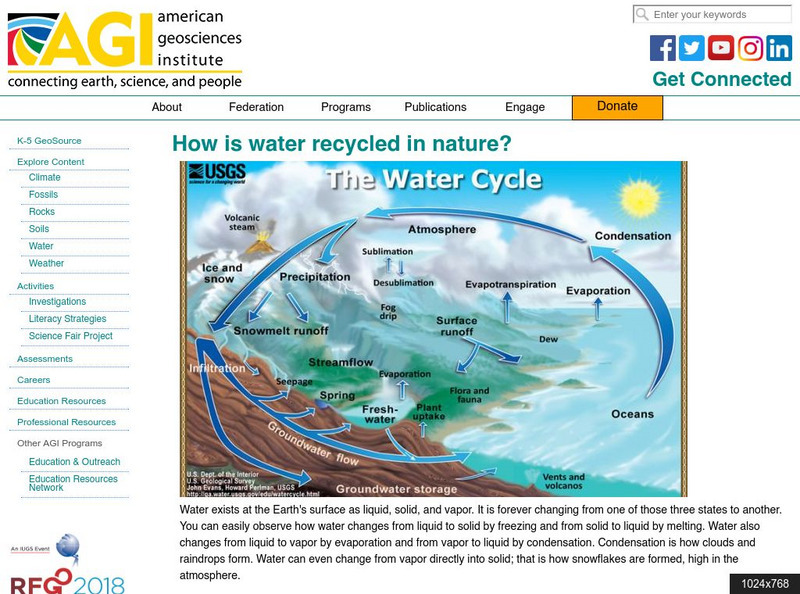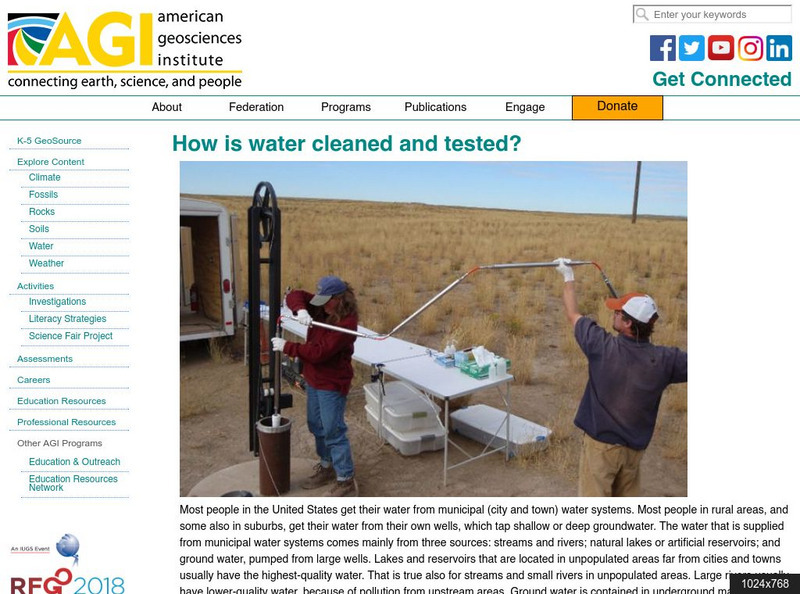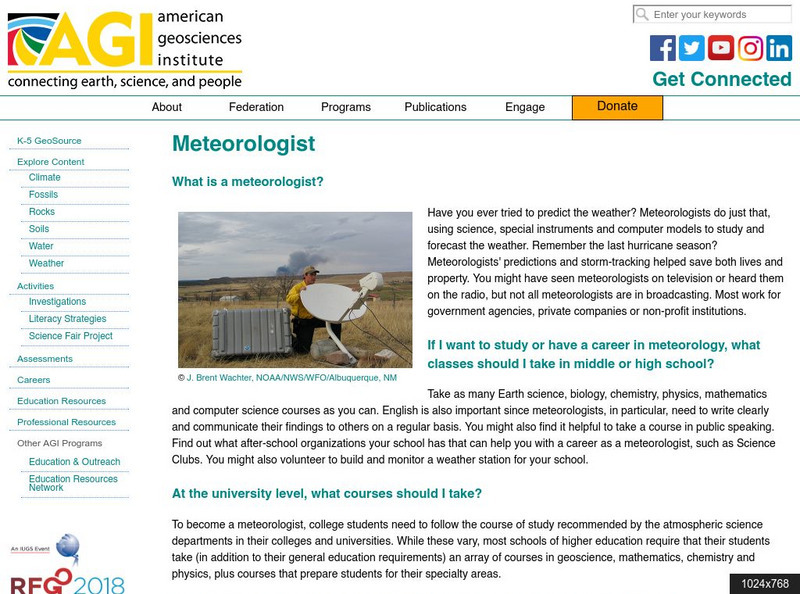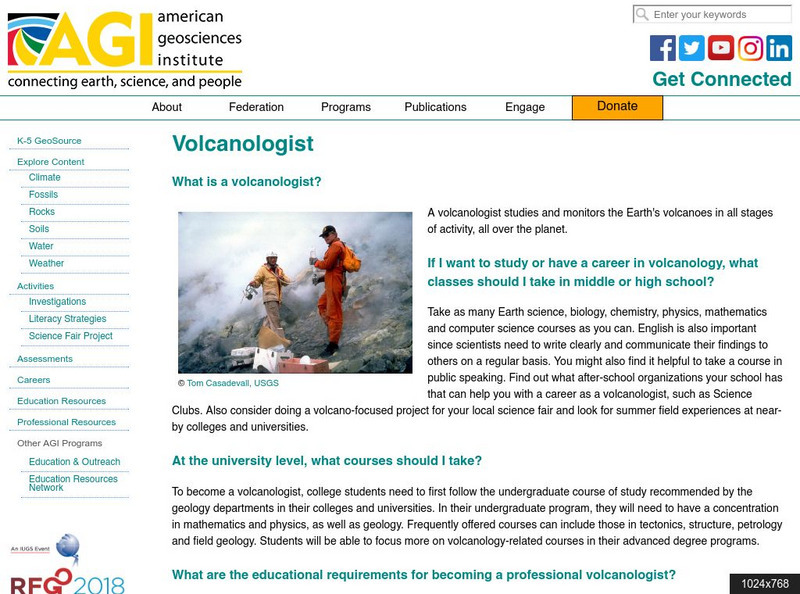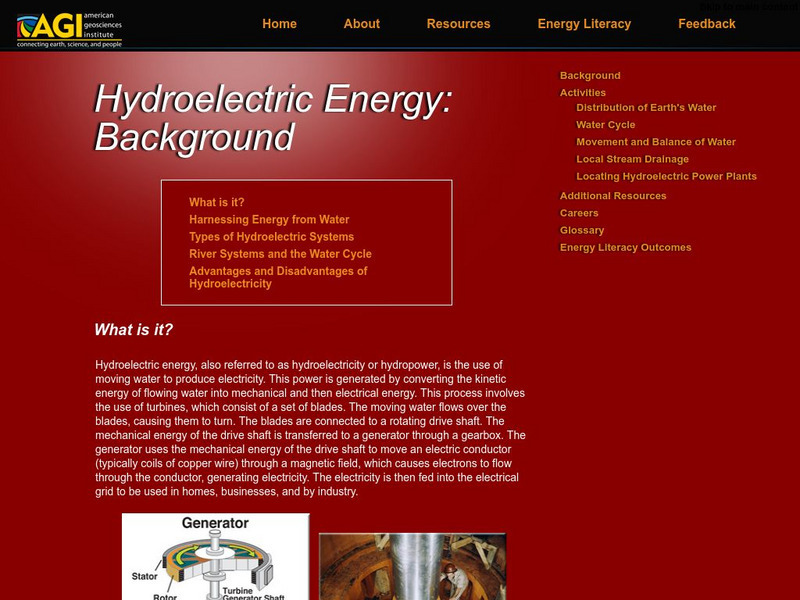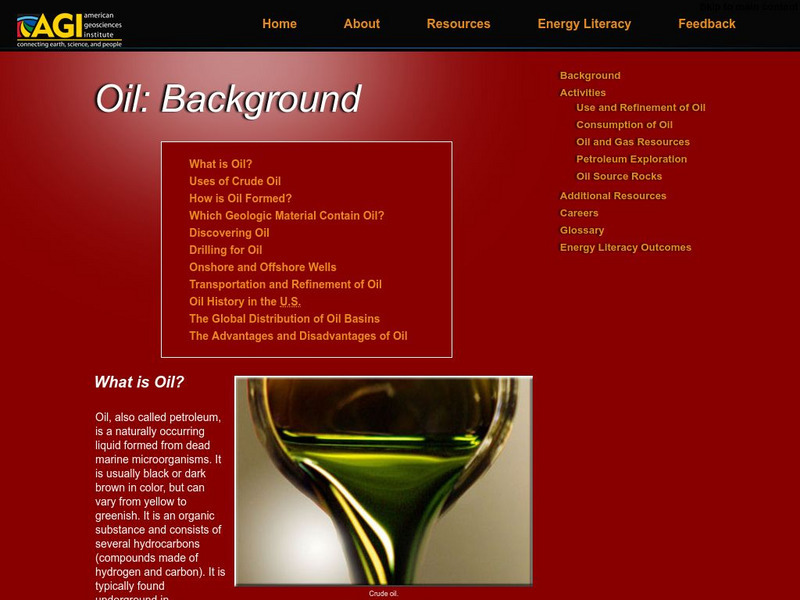American Geosciences Institute
American Geosciences Institute: Earth Science Week: Mud Fossils
In this lesson young scholars will look at the major divisions of geologic time and learn about the fossils and forms of life which existed during those periods, helping them to understand how the age of rocks are preserved.
American Geosciences Institute
American Geosciences Institute: K 5 Geo Source
A collection of content, activity and assessment ideas, printable resources, links, and research-based articles geared toward teachers of Earth science but suitable for all elementary science educators. In addition to offering materials...
American Geosciences Institute
American Geosciences Institute: What Kinds of Fossils Are There?
Learn about the different types of fossils that formed millions of years ago.
American Geosciences Institute
American Geosciences Institute: What Is Glacial Erosion?
An overview of the formation and existence of glaciers, and the effects of their movement.
American Geosciences Institute
American Geosciences Institute: How Does Water Become Polluted?
Find out how Earth's water supply can become contaminated with pollutants.
American Geosciences Institute
American Geosciences Institute: How Is Water Recycled in Nature?
Learn about nature's most reliable geochemical cycle, the water cycle.
American Geosciences Institute
American Geosciences Institute: What Is Ground Water Flow?
Find out about the constant flow of water below our feet, groundwater.
American Geosciences Institute
American Geosciences Institute: Why Is Water Special?
An introduction to one of the most diverse natural resources on Earth, water.
American Geosciences Institute
American Geosciences Institute: How Is Water Cleaned and Tested?
Read this summary of how water cleaned and tested.
American Geosciences Institute
American Geosciences Institute: What Are Weather Observations?
Find out why meteorologists need weather observations to accurately measure and predict the weather.
American Geosciences Institute
American Geosciences Institute: How Are Clouds Formed?
A brief, scientific explanation of how clouds are formed.
American Geosciences Institute
American Geosciences Institute: How Is Rain Formed?
Find out what happens inside a cloud when raindrops are formed.
American Geosciences Institute
American Geosciences Institute: Weather Forecasting Over 200 Years
Read a brief synopsis of how weather forecasting has changed over the past 200 years.
American Geosciences Institute
American Geosciences Institute: Science Fair Project
A complete guide to carrying out the most successful science fair project. Includes graphic organizers for planning.
American Geosciences Institute
American Geosciences Institute: Careers: Seismologist
Learn about the work of a seismologist, and find out what it takes to work in the field of seismology.
American Geosciences Institute
American Geosciences Institute: Careers: Meteorologist
Find out what it takes to become a meteorologist, and to become a life-long learner of science.
American Geosciences Institute
American Geosciences Institute: Careers: Volcanologist
Find out what it takes to become a volcanologist, and what is involved in the study of Earth's processes.
American Geosciences Institute
American Geosciences Institute: Careers: Hydrologist
Fins out what it takes to become a hydrologist, and to work with our most fundamental resource, water.
American Geosciences Institute
American Geosciences Institute: Careers: Oceanographer
Thinking about becoming an oceanographer? Learn what to expect and what types of requirements are needed for this career.
American Geosciences Institute
American Geosciences Institute: Hydroelectric Energy: Background
A resource page on hydroelectric energy. Learn what hydroelectric energy is, how it harnesses energy from water, different types and advantages and disadvantages.
American Geosciences Institute
American Geosciences Institute: Oil: Background
A reference page on oil. Learn about what is, uses of crude oil, how it formed, how it is drilled for both onshore and offshore, the history, and the advantages and disadvantages of oil.
American Geosciences Institute
American Geosciences Institute: Solar Energy: Background
A reference page on solar energy. Learn about solar energy, solar heating, solar radiation, and electromagnetic radiation. The page also describes the advantages and disadvantages to solar energy.
American Geosciences Institute
American Geosciences Institute: Slideshows for the Series: Living With Karst
Learn more about karst formations with this collection of slideshows. PowerPoint slides focus on how karst form, why they are important, and how to live with them.
American Geosciences Institute
American Geosciences Institute: Slideshows for the Series: Metal Mining and the Environment
This page contains a collection of PowerPoint slideshows that explores metal mining and the environment. Slideshow contains information about how metals are mined and recovered from rocks. Slideshows also investigate environmental...




